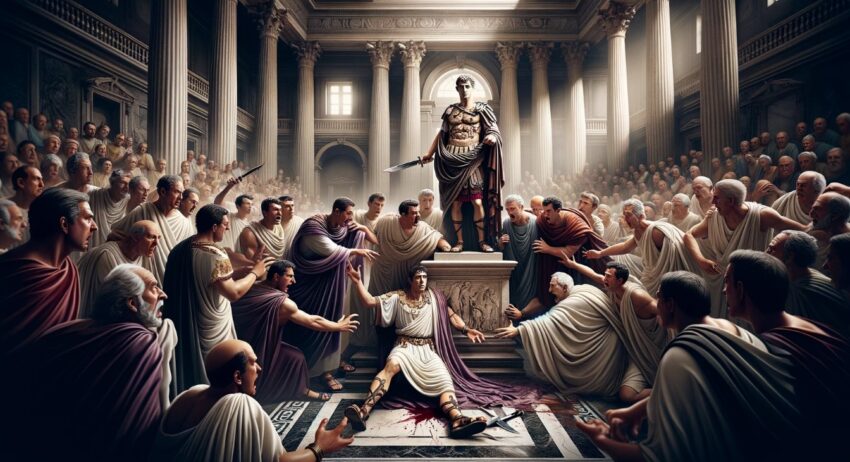Detailed account of the assassination in the Senate
The assassination of Julius Caesar in the Senate on March 15, 44 BCE, marked one of the most dramatic turning points in Roman history. This fateful day began with Caesar making his way to the Senate House, the Curia of Pompey, ignoring multiple warnings and omens. Notably, his wife Calpurnia, distressed by ominous dreams, had implored him to stay home. However, Caesar, swayed by Decimus Brutus—one of the conspirators—dismissed these concerns, showing his characteristic blend of confidence and fatalism.
Upon entering the Senate, Caesar was surrounded by a group of senators, all part of the conspiracy led by Brutus, Cassius, and other disillusioned nobles. The conspirators had crafted a plan to kill Caesar during the Senate session, using the setting’s formality and Caesar’s expectation of safety to their advantage.
The attack began when Tillius Cimber approached Caesar, ostensibly to present a petition on behalf of his exiled brother. When Caesar waved him away, Cimber grabbed his toga, pulling it down from his shoulders—a prearranged signal. The first blow came from Casca, who struck Caesar from behind. Initially, Caesar attempted to defend himself, but as more daggers found their mark, he realized the hopelessness of his situation.
Amid the frenzy, Caesar is said to have uttered his famous last words, “Et tu, Brute?”—”And you, Brutus?”—expressing his shock and betrayal upon seeing Brutus, whom he considered a friend, among his attackers. Surrounded and outnumbered, Caesar succumbed to his wounds, collapsing at the base of Pompey’s statue, which was later seen as a potent symbol of his tragic end and the conspiracy’s ties to the former regime.
The senators, drenched in blood, fled the scene in panic, leaving Caesar’s lifeless body on the Senate floor. The aftermath of the assassination plunged Rome into chaos, sparking a series of civil wars that ultimately led to the rise of the Roman Empire under Caesar’s adopted heir, Octavian, later known as Augustus.
 |
 |


